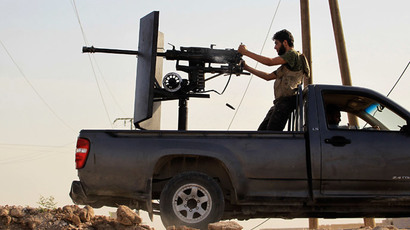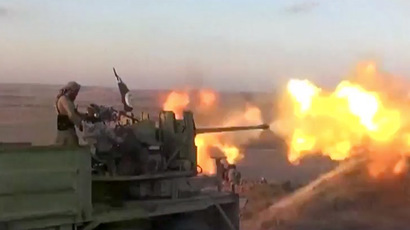‘Common enemy’: Former ISIS member calls Turkey an ‘ally’ in fight against Kurds
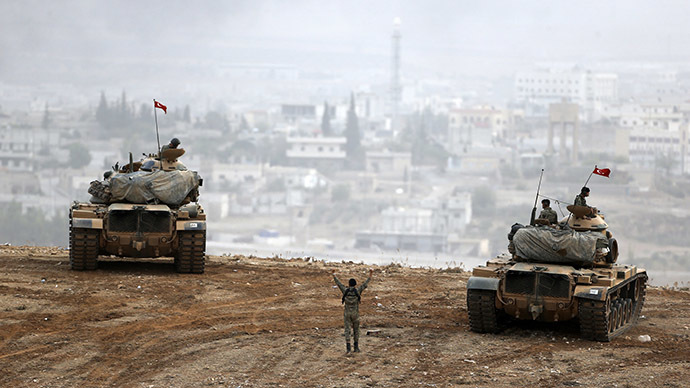
Turkey’s role in the fight against ISIS in Syria may be even more complicated than expected: a former Islamic State member reportedly claimed the country routinely communicates with the group, letting it cross the border to fight Kurdish troops.
In a report by Newsweek, the former Islamic State communications technician – dubbed “Sherko Omer” in order to protect his identity – said the extremist group considers Turkey an ally as it continues to battle Kurds in Syrian towns like Kobani.
“ISIS and Turkey cooperate together on the ground on the basis that they have a common enemy to destroy, the Kurds,” he told the magazine.
Notably, Omer said he personally brought together Islamic State commanders inside of Syria and people in Turkey “innumerable” times. The connection is reportedly so strong that the two sides primarily communicate in Turkish, not Arabic.
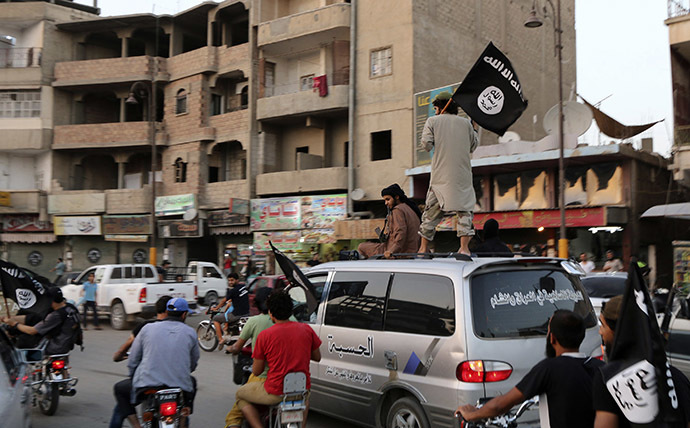
The allegations don’t end there, however. Omer added that it was easy for Islamic State fighters to make it through Kurdish defenses because the Turks allowed them to take alternate routes back and forth through the Turkish border.
“ISIS commanders told us to fear nothing at all because there was full cooperation with the Turks,” he said, referring to border crossings, “and they reassured us that nothing will happen, especially when that is how they regularly travel from Raqqa and Aleppo to the Kurdish areas further northeast of Syria because it was impossible to travel through Syria as [the National Army of Syrian Kurdistan, or YPG] controlled most parts of the Kurdish region.”
READ MORE:Syria blasts Turkey for allowing Iraqi Kurdish fighters safe passage to Kobani
For its part, the YPG told Newsweek that Turkish forces are actually supplying the Islamic State with weapons and ammunition.
If confirmed, the news could cast Turkey’s actions under even more scrutiny. The US has been pushing the country to become more involved in the conflict against IS – particularly in the Syrian town of Kobani, where Kurds are resisting an onslaught by militants. However, Turkish President Tayyip Erdogan has resisted due to fears of empowering Kurdish factions in his own country that could push for independence.
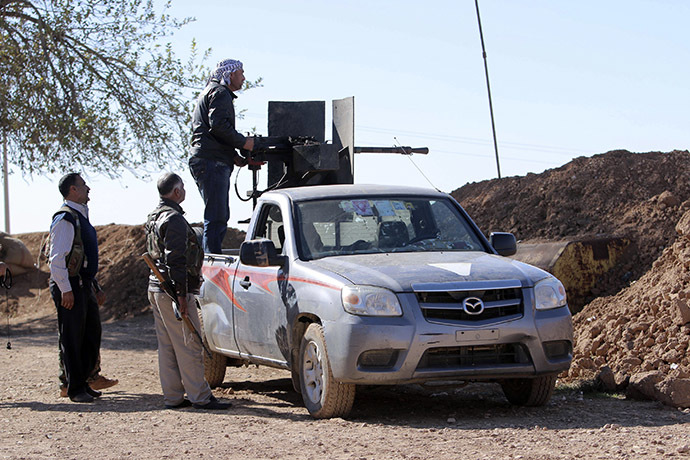
Turkey is also reluctant to enter the fight against the Islamic State without receiving assurances from the US that it will help topple the government of Syrian President Bashar Assad, whom Ankara opposes. So far, the US has declined to make such a pledge.
Following tense exchanges between the two sides, Turkey agreed to help Iraqi Kurd peshmerga fighters reach Kobani to help their fellow Kurds fight militants.
READ MORE:'If we don’t, who will?' Kurdish fighters smuggled across border to join Kobani struggle
The arrival of peshmerga with armored vehicles and artillery has enabled Kurds to retake some of the villages around Kobani, but failed to break the siege of the Syrian border town which eastern part is still controlled by the jihadists.
“There is no change at all in Kobani as a result of the peshmerga," said Rami Abdulrahman of the Britain-based Syrian Observatory for Human Rights, according to Reuters. “Maybe one or two streets are gained then lost, back and forth.”













